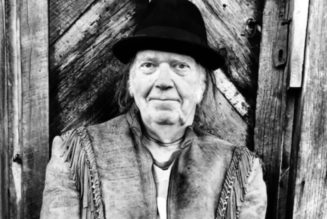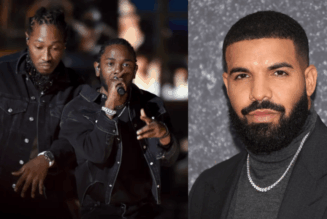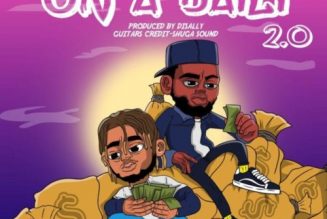
Music was an essential part of my family’s household when I was growing up. Our day-to-day lives always had a soundtrack. Sometimes, we washed dishes to American greats like The Supremes, Aretha Franklin, The Jackson 5 and Stevie Wonder. Other times, usually when my parents were feeling particularly homesick for their native country, Kenya, they’d blast artists like Nameless, E40 or Ogopa Deejays. I loved it all, from Diana Ross’ dreamy vocals to Ogopa Deejays’ vibration-inducing beats.
Outside of the house, the music sounded very different. American artists filled what the radio stations played and reached the Billboard Hot 100. White American artists, usually. It was the early aughts—back then, most Americans and other people in the Western world believed Africa was a war-torn, poverty-stricken row of huts.
I asked my mom once why African artists, particularly my beloved Kenyan rappers and singers, were so unknown in the United States.
“Americans don’t care about what we have to offer,” she responded. “I don’t think they ever will.”
Turns out she was wrong. In recent years, Afrobeats, a genre of African music from the continent’s western region that blends elements of electronic, dance, African percussion, highlife, dancehall, hip-hop and R&B, has become a global sensation, Rolling Stone reported. Listeners around the world can’t get enough of artists like Burna Boy, who snagged his first Grammy Award for best global music performance for his Toni Braxton-sampled hit “Last Last” in 2022, smoky vocals and Wizkid, who earned his first entry on the Billboard Hot 100 as a lead performer for his summer banger “Essence” in 2020. More recently, South African singer Tyla has broken the internet with “Water,” spawning a viral by grown-ish alum Trevor Jackson. And Nigerian artist Rema made history by performing at Paris’ Ballon d’Or ceremony.
The Afrobeats boom has become so powerful it started to impact the American music industry meaningfully. Earlier this year, the Grammys announced a best African music performance award to recognize “recordings that utilize unique local expressions from across the African continent, highlighting regional melodic, harmonic and rhythmic musical traditions.” American artists are running toward collaborations with African artists—Chris Brown’s “Sensational” sees him link up with American Nigerian singer Davido and Nigerian vocalist Lojay. Breezy even attempts a West African pronunciation of the song’s title throughout the track.
All this newfound attention is wonderful and suggests a brighter future for up-and-coming artists on the continent striving for world domination. But the Afrobeats ascension happening in the U.S. and worldwide has fostered a monolithic understanding of the genre. East African music and artists have been completely left out of the conversation, and I’ve found myself asking the same question I asked my mom 20 years ago: Why?
In short, it’s complicated. And multilayered.
Kenyan singer Lisa Odour-Noah explained that part of the reason West African artists have been able to “cross over” is their culture’s commitment to patriotism.
“I think that one thing that I’ve noticed is that there’s a certain level of consumption of their individual artists. A lot of West Africans listen to West African music before they listen to Western music,” she said.
That patriotism goes beyond West Africans living in the region. West Africans are loud and proud of who they are throughout the African diaspora. Kenyans and other East Africans tend to wear their identities quieter, which stunts the region’s musical exposure globally.
“East Africans, our radio stations don’t play music when we go abroad,” Odour-Noah stated. “We’re very subtle about the way we carry our culture.”
Odour-Noah thinks East Africa has been left out of the Afrobeats conversation because of how Kenyans and other East Africans listen to music.
“I think our biggest issue is how we consume music,” she shared. “People are more interested in buying records from outside artists rather than from ours.”
There’s a common saying in Kenya: If you want to be successful in the country, you have to become successful outside of Kenya. That mentality is why folks worldwide don’t pay attention to the country’s creative endeavors. How can we ask outsiders to champion our music when we don’t?
Public perception of East Africa doesn’t help the disparity. Odour-Noah said that during her time at Berkley College of Music, whenever she told someone she was from Kenya, “the first thing they associate me with is running. Not music, of course.”
Odour-Noah also suspects American listeners think Kenyans don’t speak English, repelling them from East African music.
“We were also instructed in English, OK guys,” she said with a laugh, adding that even if Kenyans didn’t, it shouldn’t change whether they listen to our music.
“Most people don’t even know what Nigerians are saying in their music,” she argued. “It’s pidgin English. If you’re able to listen to that, why aren’t you able to listen to us? You should be intrigued enough to look at others.”
The transatlantic slave trade also plays a role in East Africa trailing behind its West African counterparts when it comes to music. Kenyan singer Ike Ngala (aka iKen), who’s starting to make a name for himself in the U.K., noted that, because of America’s historical connection to West Africa, it makes sense that they’ve been able to make a presence for themselves in entertainment quicker than East Africans.
“The music industry is U.S./UK-dominated, and with so many West Africans in the diaspora, I’m not surprised that Afrobeats artists are getting the attention they deserve,” Ngala said via email.
While his star rises across the pond, he’s found that Afrobeats’ popularity is pigeonholing him as an artist.
“I think the U.K. music industry hasn’t yet found a place for African artists who don’t make ‘African’ music,” he shared. “When introduced as a Kenyan artist, I’ve noticed that most people tend to latch onto the ‘Afrobeats’ label. By making me a ‘Kenyan artist,’ the type of music I make ends up coming second to where the music originated from, and potential listeners may not get to realize that Kenyan/African music can sound a lot different than what they normally expect.”
He added that he’s seen “many other talented African artists fail to break through the noise because their music is expected to sound a certain way.”
Then there’s the state of music industries around East Africa. In most nations in the region, their music industries are nonexistent, which often leaves artists to fend for themselves.
“It’s pretty challenging, as we have a fairly nascent scene but barely have the industry infrastructure to really prop up what the artists are doing, so everything we do, we’ve done ourselves, which is commendable, but phew, it’s exhausting,” Blinky Bill, one of Kenya’s most prominent musicians and producers, wrote via email.
Fixing those industries is no easy feat.
“I think the industry has so much room for growth,” Odour-Noah said. “I think the harder part is structuring that growth.”
Many East African artists end up giving up. Most Kenyan artists I grew up loving have long left the industry to pursue more profitable careers, leaving up-and-coming artists without support and guidance.
But East African artists are finding their way through.
“Our culture is so rich,” Odour-Noah, who is working on integrating Kenyan folklore and songs into her work, said. “I come from a country where we have 43 tribes. And some of the tribes, there are nine, seven, six dialects. I want people to be curious and see what we have to offer. And I’m positive that one day, that will happen.”
Ngala is optimistic, too, and shared that he believes change starts with East Africans in the region and the African diaspora.
“In the past, the East African music industry hasn’t done much to support its artists,” he explained. “The system hasn’t been the most beneficial for artists in the past, with difficulties collecting royalties, less East African music being played on radio, and so on. There are plenty of East African artists around the world, and I feel like if enough of their music is supported and highlighted (especially within East Africa), then East African artists could see much more attention. My main thing, though, is that it has to start at home.”
Ngala’s right; it starts at home. And while East African music industries evolve, it’s on listeners to go out of their way to seek East African music. It may seem like a hassle, but trust me, it’s worth it.








